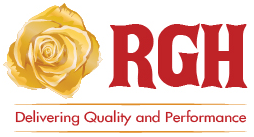6 Points to Build a Solid Hotel Marketing Plan
You’re perhaps aware that each year in India, a horde of hotels relinquish life within the first year itself. Have you ever wondered why? Well, aside from factors such as an inefficient staff, lack of adequate facilities and services, mediocre management, and steep tariffs, there’s another aspect that sets a hotel up for failure and that is, incompetent marketing.
In this post, we’ve curated 6 points to keep in mind for constructing a potent hotel marketing plan:
1. Conduct Market Survey & Business Forecasting: The first step for any hotel owner is to invest in a precursory market survey to analyse the competition in the region and set rates accordingly. This survey must indicate the estimated revenue and expense flows for the first two years. A thorough market research and analysis helps in forecasting the positioning of the upcoming hotel. Essentially, it is the market that sizes up the level of a particular hotel.
Furthermore, it is crucial to understand that the two factors – location of the hotel and its proximity to the demand generators, put ice on room and F&B revenues. Industry experts believe that hotels that fall within the range of 10-30 KMs from the city center or demand generators should offer discounted rates to attract new customers.
2. Hire a Pre-Opening Team in Advance: The pre-opening phase of a hotel is an extremely critical aspect that should not be marginalized at any cost. You might have everything in place including a dream-team but without a steady stream of guests, all your investment is futile. Hence, it is important that hoteliers hire a pre-opening crew at least 6-8 months prior to the launch date.
You may appoint workforce for other business functions later but the sales and marketing team must be on board well in advance. This team will prepare sales and marketing collaterals, map the customer base, and kick off the coalition process with key corporate accounts. Make sure that your team prepares an accurate pre-opening budget and an annual sales budget with a plan of action chalked out the entire year.
3. Get Professional Photographs and Build an Attractive Website: As the saying goes, “A picture is worth a thousand words”. Believe it or not, one of the first things a potential customer does is look at hotel pictures. High quality photographs of all the hotel areas and amenities sans pixilation increases the probability of a room sale by tenfold. Therefore, hiring a professional photographer becomes one of the topmost priorities. Thanks to the advancement in virtual reality (VR) technology, you can now upload 360-degree virtual tour of your hotel. But where will your guests see these pictures/virtual tours? Apart from price comparison websites, online travel agencies, and review companies like Tripadvisor, the most primary platform for viewing hotel’s images are on the hotel’s website itself. We cannot emphasize enough the value of having your own website that is appealing as well as user-friendly. Scour the internet and local market for the best website development companies and have your website up before the hotel launch.
Not sure about the knowhow of creating a website for your hotel? Read this free guide to designing a website for your hotel.
However, having a website is not enough in this age of digitalization and social media. You must prepare a sound digital marketing plan to promote your website and business through various online mediums like search engines, social media, email, mobiles, etc.
4. Organize FAM Trips from Time to Time: FAM trips or familiarization tours are basically either a sponsored, or a discounted trip offered by tour operators or airlines to travel agents, corporate companies, or consultants with the aim of promoting products or services. However, these days even hotels arrange similar trips and stays for corporate bookers, commercially important people (CIP), and top travel agents. This is one of the best ways to boost hotel revenue while maintaining a long-term mutually beneficial relationship with regular, bulk purchasers of your services. Your sales team should also pitch and participate in annual RFPs of various corporate organizations.
5. Approach MICE Companies: MICE, short for Meetings, Incentives, Conferences, and Exhibitions, is one of the biggest income generators for a hotel business since it involves regular, aggregated bookings. The sales and marketing team must get in touch with MICE organizers and pull out all stops to get your hotel listed as the preferred accommodation partner for various work events.
Even large-scale social events such as weddings buy out almost all the rooms of a hotel. Note that auspicious dates especially in a country like India create a very high demand for the aforementioned event. Since the demand is so high during such occasions and peak periods, the banqueting team must be fully geared to adopt a dynamic pricing for maximum profits.
6. Team Up with Leading OTAs: In today’s day and age, every person looking to travel wants things at the click of a button. As far as hotels are concerned, the online booking facility makes travel arrangements lot easier, faster, and convenient. While it is highly important to integrate an online booking engine on your own website, it is also beneficial to be listed with well-established online travel agencies that guarantee a certain percentage of sales per month. These online travel portals are also able to offer huge discounts by keeping their margins low since they buy inventories in bulk. Keep in mind that driving traffic to a new hotel is a tall order and well-known travel companies assure a wide clientele. An agreement with brands (domestic as well as international) promises countrywide visibility and this isn’t possible for a standalone hotel to achieve on its own. Having said that, you must limit the exposure of your hotel room inventory in order to avoid sharing profits whenever possible.
The Upshot:
As with any business in the modern era, marketing, both online and offline, is of paramount importance in order to appeal to new guests while retaining old, loyal customers. The present climate of the hospitality industry is combative and acutely competitive. Moreover, the hotel business is one that’s across-the-board in that it not only entails the hotel operations but also enmeshes a wide range of smaller businesses such as spa, restaurants, bars, golf, casinos, etc. In order to achieve success, a hotel owner must devise effective marketing strategies which would not only aid in selling rooms and other packages but also endorse the overall experience.
As with any business in the modern era, marketing, both online and offline, is of paramount importance in order to appeal to new guests while retaining old, loyal customers. The present climate of the hospitality industry is combative and acutely competitive. Moreover, the hotel business is one that’s across-the-board in that it not only entails the hotel operations but also enmeshes a wide range of smaller businesses such as spa, restaurants, bars, golf, casinos, etc. In order to achieve success, a hotel owner must devise effective marketing strategies which would not only aid in selling rooms and other packages but also endorse the overall experience.

